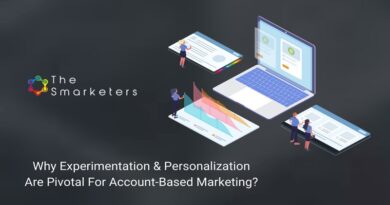AI-Powered ABM: Transforming Enterprise Personalization Strategies
AI-Powered Account-Based Marketing (ABM) is fundamentally transforming enterprise personalization strategies by moving beyond broad-based targeting to a hyper-personalized, one-to-one engagement model at scale. Traditional ABM, while effective, is a manual, resource-intensive process that becomes difficult to scale. Artificial intelligence (AI) eliminates these limitations by automating complex tasks and delivering insights that were previously impossible to attain. The integration of AI into ABM allows businesses to identify, understand, and engage high-value accounts with unprecedented precision, leading to stronger relationships and accelerated revenue growth.
The transformation begins with intelligent account selection. Instead of relying on static lists, AI uses predictive analytics to analyze vast datasets, including firmographics, technographics, and intent signals. This helps identify which accounts are most likely to buy and prioritize them based on their propensity to convert. By analyzing a company’s past interactions, website behavior, and even third-party intent data (like search queries and content consumption), AI can predict a company’s buying stage and signal its readiness for a sales conversation. This data-driven approach ensures that marketing and sales teams focus their efforts on the most promising opportunities, leading to a much higher return on investment.
Once a target account is identified, AI enables hyper-personalization at scale. It can dynamically generate personalized content for each account or even for individual stakeholders within that account. Imagine a website that serves up a unique homepage for a visitor from a target company, with content, case studies, and messaging tailored to their industry and specific pain points. AI can also craft personalized email subject lines and body content, dynamically adjust ad creatives, and recommend the best next action for a sales representative to take. This level of personalization, which would be impossible to achieve manually across hundreds of accounts, makes the outreach feel less like marketing and more like a helpful, one-to-one conversation.
AI’s role extends to orchestrating and optimizing multi-channel engagement. It can automate the delivery of personalized content across different platforms—from emails and paid ads to chatbots and social media—ensuring a cohesive and timely experience. AI-powered systems can analyze real-time engagement data to adjust a campaign on the fly, for example, by automatically sending a follow-up email when an account visits a specific product page. This continuous, data-driven optimization ensures that every interaction is relevant and impactful. Ultimately, AI frees up human marketers and salespeople to focus on high-value, strategic activities like building relationships and closing deals, while the AI handles the heavy lifting of data analysis, content creation, and campaign execution. Case studies from companies like Snowflake and LiveRamp show a significant increase in meetings booked, pipeline growth, and revenue as a direct result of implementing AI-powered ABM strategies.




